Related Research Articles

The Academy Awards, popularly known as the Oscars, are awards for artistic and technical merit for the American and international film industry.
The Academy Award for Best Documentary Feature Film is an award for documentary films. In 1941, the first awards for feature-length documentaries were bestowed as Special Awards to Kukan and Target for Tonight. They have since been bestowed competitively each year, with the exception of 1946. Copies of every winning film are held by the Academy Film Archive.

John Towner Williams is an American composer, conductor and pianist. In a career that has spanned seven decades, he has composed some of the most popular, recognizable and critically acclaimed film scores in cinematic history. Williams has won 25 Grammy Awards, seven British Academy Film Awards, five Academy Awards and four Golden Globe Awards. With 52 Academy Award nominations, he is the second most-nominated individual, after Walt Disney. His compositions are considered the epitome of film music and he is considered among the greatest composers in the history of cinema.
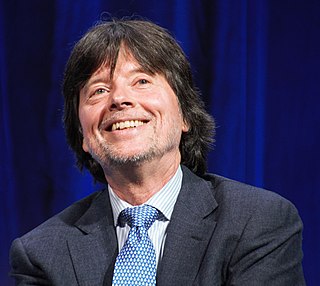
Kenneth Lauren Burns is an American filmmaker, known for his style of using archival footage and photographs in documentary films.
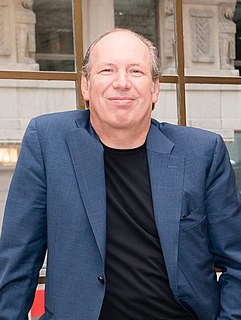
Hans Florian Zimmer is a German film score composer and music producer. He has won two Oscars and four Grammys, and has been nominated for two Emmys and a Tony. Zimmer was also named on the list of Top 100 Living Geniuses, published by The Daily Telegraph.

Ray Milton Dolby was an American engineer and inventor of the noise reduction system known as Dolby NR. He helped develop the video tape recorder while at Ampex and was the founder of Dolby Laboratories.

Benjamin Burtt Jr. is an American sound designer, film editor, director, screenwriter, and voice actor. As a sound designer, his credits include the Star Wars and Indiana Jones film series, Invasion of the Body Snatchers (1978), E.T. the Extra-Terrestrial (1982), WALL-E (2008) and Star Trek (2009).

Walk the Line is a 2005 American biographical musical romantic drama film directed by James Mangold. The screenplay, written by Mangold and Gill Dennis, is based on two autobiographies authored by singer-songwriter Johnny Cash, 1975's Man in Black: His Own Story in His Own Words and 1997's Cash: The Autobiography. The film follows Cash's early life, his romance with June Carter, his ascent in the country music scene, and his struggle with drug addiction. It stars Joaquin Phoenix as Cash, Reese Witherspoon as Carter, Ginnifer Goodwin as Cash's first wife Vivian Liberto, and Robert Patrick as Cash's father.
James K.A. Guthrie is an English recording engineer and record producer best known for his work with the progressive rock band Pink Floyd serving as a producer and engineer for the band since 1978. He is the owner and operator of das boot recording in Lake Tahoe, California. Married to Melissa Kathryn (Braun) Guthrie and parent of two cats, Bert & Jack. Original music and scoring.
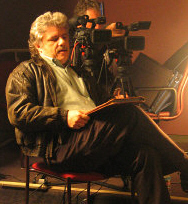
William Gazecki is an American film director and former sound mixer best known for his documentary Waco: The Rules of Engagement (1997), which earned a News & Documentary Emmy Award and was nominated for an Academy Award for Best Documentary Feature. The film premiered at the Sundance Film Festival, was awarded the International Documentary Association's Distinguished Documentary Achievement Award, and won awards at both the Melbourne International Film Festival and the Vancouver International Film Festival. Gazecki was nominated another three times for an Emmy award, and for an Academy Award in 1998.
George Robert Groves was a film sound pioneer who played a significant role in developing the technology that brought sound to the silent screen. He is also credited as being Hollywood's first ‘sound man’; he was the recording engineer on the seminal Al Jolson picture, The Jazz Singer (1927), as well as many other early talkies. In a career with Warner Brothers that spanned 46 years, he rose to become their Director of Sound and won two Academy Awards out of eight nominations in total.

James Graham Stewart was an American pioneer in the field of sound recording and re-recording. His career spanned more than five decades (1928–1980), during which he made substantial contributions to the evolution of the art and science of film and television sound.

Ted Jensen is an American mastering engineer, known for having mastered many recordings, including the Eagles' Hotel California, Green Day's American Idiot and Norah Jones' Come Away with Me.
Michael Minkler is a motion picture sound re-recording mixer. He has received Academy Awards for his work on Dreamgirls, Chicago and Black Hawk Down. His varied career has also included films like Inglourious Basterds, JFK and Star Wars, as well as television programs like The Pacific and John Adams. Minkler works at Todd-AO Hollywood. He is also the Managing Director of Moving Pictures Media Group, a company that specializes in film development, packaging projects for production funding acquisition.
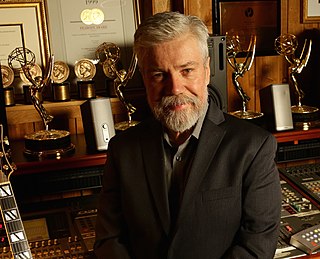
Brian Keane is a multi Emmy and Grammy award-winning American composer, music producer, and guitarist. Keane has been described as "a musician's musician, a composer's composer, and one of the most talented producers of a generation" by Billboard magazine.
Mark Berger is an American sound engineer. He has won four Academy Awards for Best Sound. He holds the Academy Award record for "perfect score" with 4 nominations and 4 wins. He is best known for his work on The Godfather Part II (1974), One Flew Over the Cuckoo's Nest (1975) and Apocalypse Now (1979). He has worked on more than 170 films since 1973.
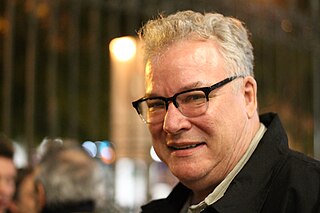
Tom Fleischman is an American sound engineer and re-recording mixer. He is the son of film editor Dede Allen, and documentary producer, director, and writer Stephen Fleischman. He has worked on over 170 films since 1978. He won an Academy Award in 2011 in the category Academy Award for Best Sound Mixing for Hugo and has received four other Oscar nominations for Reds (1982), The Silence of the Lambs (1992), Gangs of New York (2003), and The Aviator (2004).
Simon Hayes is a British sound engineer. Hayes won an Academy Award for Best Sound at the 85th Academy Awards for his work on Les Misérables. He won a BAFTA for Best Sound for the same film. In 2022, the 94th Academy Awards included Hayes as a nominee for Best Sound Mixing for his work on No Time to Die.
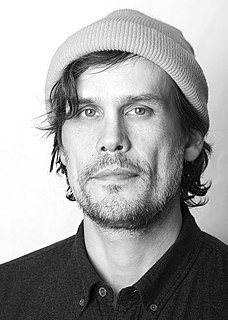
Dave Cooley is an American mastering engineer and audio restoration specialist. His numerous mastering credits include J Dilla's Donuts and The Diary, Paramore's After Laughter, 40th anniversary release of Bob Marley's Exodus box set, the reissue of Isaac Hayes' Concord Records albums, as well as albums from independent labels Domino, Tuff Gong, Stones Throw Records, and Light in the Attic Records and artists M83, Ziggy Marley, J Dilla, Peanut Butter Wolf, Madvillain, Madlib and Animal Collective. He has worked on Grammy-nominated albums for Silversun Pickups, including their debut album Carnavas, and its follow up, Swoon which included the hit “Panic Switch”, as well as Ziggy Marley's Fly Rasta, which won Grammy Award for Best Reggae Album in 2015. His remastering work for Sixto Rodriguez appeared in the soundtrack for Searching for Sugar Man, which was awarded an Oscar for Best Documentary Feature in 2013. He also mixed These New Puritans' album Hidden, named album of the year in 2010 by NME magazine.
Thomas Vicari is an American recording engineer, mixing engineer, record producer and scoring mixer known for his work with Quincy Jones, Gino Vannelli, Nicholas Britell, Thomas Newman, Prince, George Duke and Barbra Streisand. He was the sound mixer for TV shows and films including Six Feet Under, The Newsroom, Behind the Candelabra, Phantom of the Paradise, Finding Nemo, Finding Dory, Wall-E and Road to Perdition.
References
- ↑ "Dominick Tavella – Soundtrack Group". soundtrackgroup.com. Retrieved April 27, 2020.
- ↑ "What Our Members Do: Dominick Tavella, CAS". CineMontage. February 1, 2018. Retrieved April 27, 2020.
- ↑ "Intercom - Academy Award-Winning Sound Mixer, Dominick Tavella, to Speak on March 23". www.ithaca.edu. Retrieved April 28, 2020.
- ↑ "The 75th Academy Awards (2003) Nominees and Winners". oscars.org. Retrieved November 20, 2011.